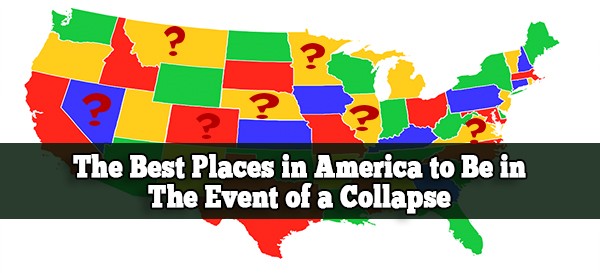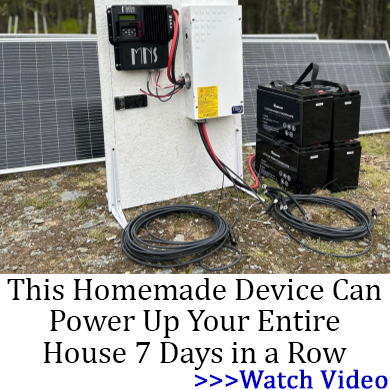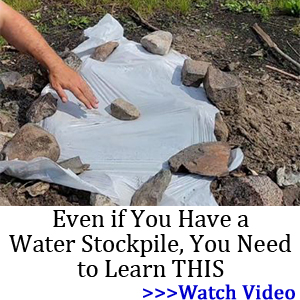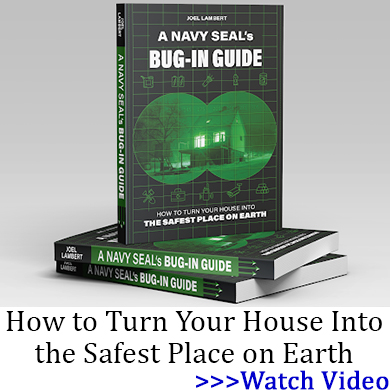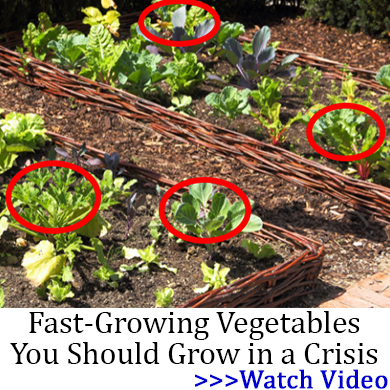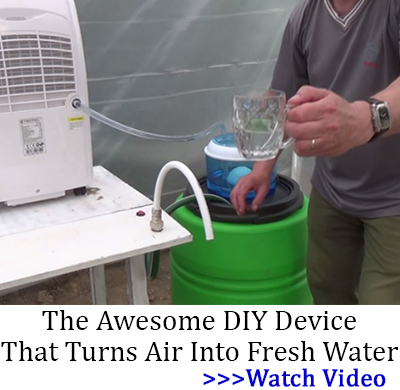The simple truth of the matter is that if there actually is a major crisis or disaster that leads to a prolonged societal collapse in the US, there really isn’t going to be a “Good Place” to be. So, what we are looking for is the highest level of least bad we can achieve, and with careful planning and attention to certain factors it is possible to achieve a situation which is not only “survivable” but actually livable in even the worst case scenario. Obviously, where you choose to live will have an impact on your preparedness plans, so always keep that in mind.
First, you want to pick a place that allows you to maintain a normal, mainstream life before life as we know it comes crashing down. A lot of us are of the mindset that something catastrophic is inevitable, and history teaches us that this is indeed the case. I am becoming increasingly convinced that this is a sooner rather than a later probability, however it could conceivably still be years away. So in the meantime, you want to have reasonably convenient access to things like employment, education, cultural and extracurricular activities for your kids, modern medical facilities, shopping, and all the trappings of modern life. It is not yet time to run off and live in a cave isolated from the world (If that is your mindset, it doesn’t make you “Wrong”. But it doesn’t make you a prepper either. It makes you a hermit!).
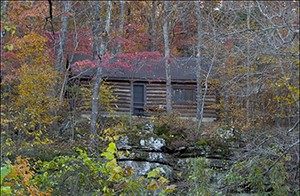 However, when the fall arrives, large population centers are going to be rather dangerous on a number of levels. So it is wise to remove yourself from large cities. My suggestion in order to be able to have the best of both worlds is to choose a location in a rural setting between 70 and 100 miles from a small to mid-sized city. This distance allows you access to all the luxuries and conveniences, is within’ a manageable commuting distance if you are tied to a professional career, but it also provides a fairly substantial degree of insulation from the worst of the Urban Dangers that will crop up quickly once the balloon goes up.
However, when the fall arrives, large population centers are going to be rather dangerous on a number of levels. So it is wise to remove yourself from large cities. My suggestion in order to be able to have the best of both worlds is to choose a location in a rural setting between 70 and 100 miles from a small to mid-sized city. This distance allows you access to all the luxuries and conveniences, is within’ a manageable commuting distance if you are tied to a professional career, but it also provides a fairly substantial degree of insulation from the worst of the Urban Dangers that will crop up quickly once the balloon goes up.
You also want to choose an area where food is produced, and where you can start making food producing improvements to your property. In short, you want good soil and enough water to grow gardens and water live stock. You want an area where livestock is produced and sustained on natural grazing and not in feed lots. You also want to be absolutely certain that there is plenty of easily accessible water for your drinking, cooking, and sanitary needs. There are many isolated areas in deserts and high mountains, but there is a reason these places were never settled extensively. That reason is that it is hard to come up with enough water to grow things, and the climate in many cases is too extreme to live in comfortably year-round. In a prolonged survival situation, you don’t want to be dependent on cisterns and extremely deep wells, or on technology dependant delivery systems.
You will want to find an area where like-minded people live. This isn’t as hard as it sounds. Most rural areas still have core values of self sufficiency. They are also pockets of old school knowledge that has been lost in the larger world. In an area like this, if you have something to contribute it will be much easier to find a group to band together with for mutual defense and support when the time comes. You will also find that in such areas there is a strong gun culture, and you will neither stand out nor be the sole armed protector should the need arise, and you won’t be saddled with a bunch of suddenly armed newbies that don’t have a clue, country boys and girls know how to use their guns!
Another consideration is proximity to nuclear power plants, proximity to military installations, distance from potential targets in a nuclear attack, and things of this nature. As concerns the power plants, all I’m going to say is Fukushima. As to military installations, the concern is always martial law, confiscations, conscriptions and so on, all the FEMA camp nightmares we have envisioned and theorized about. I am not particularly concerned about nuclear war in the classic sense, and feel that EMP type weapons are a far more likely and devastating possibility, but terrorism is always a consideration and those guys are nuckin’ futs and very hard to anticipate, so being too close to potential targets detracts from an areas desirability.
So, where are the best places to be?
1. My personal favorite is the Ozarks region of Missouri, Arkansas, and Oklahoma. This region provides many areas that are about the right distance from cities, have a good water supply, strong rural and conservative traditions, agricultural activity in the form of farming and ranching, and a history of subsistence farming. I wound up in the Ozarks almost by mistake, but have found much to love about the region, and many positive attributes from a prepper’s perspective. There are a lot of preppers here, so finding likeminded folks to bond with is not difficult.
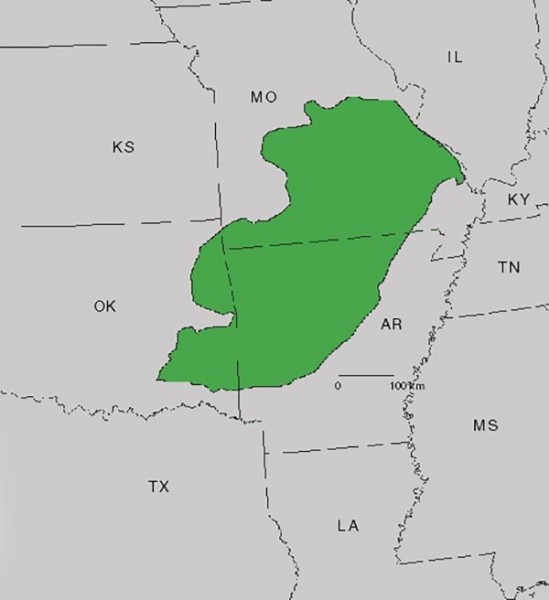
The Ozarks region, in green, is my top pick. Some of that is just personal preference, but there is much to commend the Ozarks from a prepper’s standpoint.
2. My second Choice is the Appalachian region with a strong preference for the Great Smoky Mountains of North and South Carolina, West Virginia, Kentucky, and Tennessee. These regions offer up similar benefits to the Ozarks region, and offer up a lot of good choices to live a nice life today and weather the potential coming bad times. Again, be sure that a given location meets the other criteria, particularly the distance from major population centers. The portions of the Appalachians passing through the North East may be a less desirable idea due to proximity to many larger cities, but even here pockets of desirable location can be found.
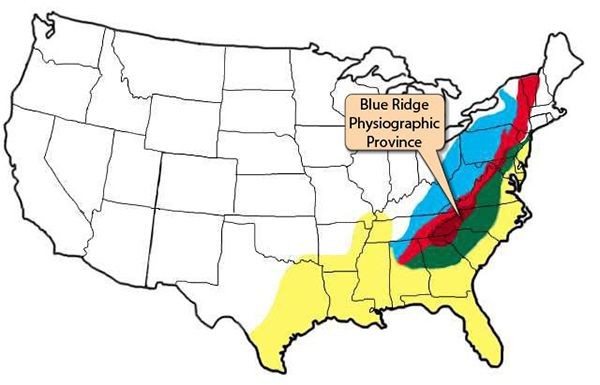
The red areas are best, green and blue areas are pretty darn good, but I would steer clear of the yellow.
3. My Final top pick is the Cascade Mountains of Washington, Oregon, and California. Once again, there are plenty of spots in this region that meet the criteria. There are a lot of remnants of rural culture and heritage, and the climate is quite favorable for subsistence gardening. You have to be careful on the west coast though, there are large populations of liberals who won’t like your guns and have more of a dependence mentality than an independence mentality. If you are able to do so in advance, check out the attitudes and demeanor of local residents, if there is a core of “Old time Families” that is a plus, if there is a large population of relocated urban Californians, that is a big minus. If there is a large Hippy population, don’t write it off too quickly, many Hippy Types are pretty dialed in on the preparedness, self sufficiency, and Libertarian principals (It’s that old “don’t judge a book by its cover thing!).
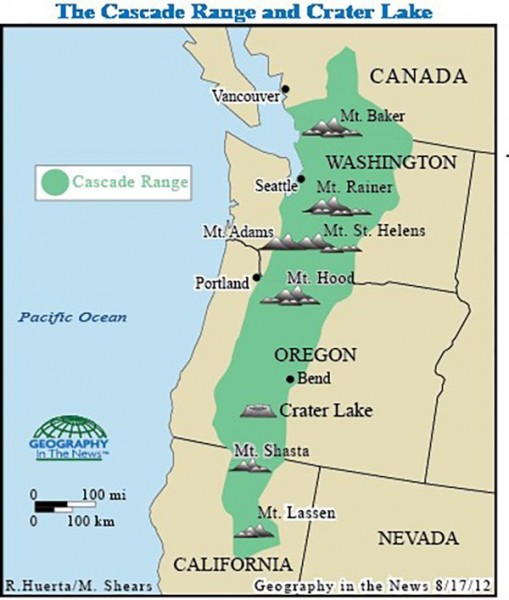
My Final advice is to take a look at a precipitation map of the US. This will give you important clues to suitable locations. With adequate average rainfall, you need only look for oplaces that meet your other criteria to be fairly well assured that you have found as good a spot as any to weather the storm in a SHTF scenario.
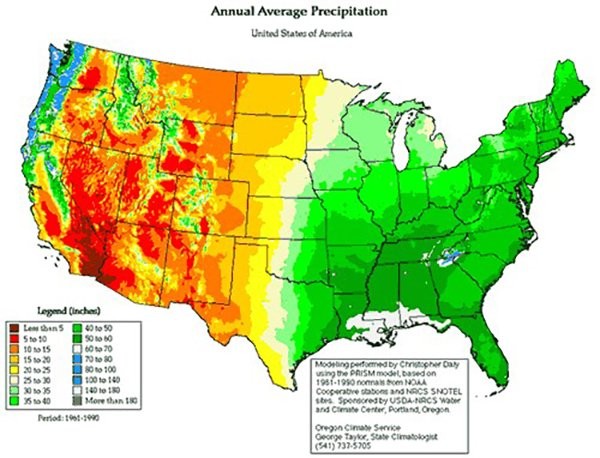
All other criteria being met, the areas in greens and blues are your best bet in a SHTF scenario.
These are the best tips I can offer. Do you have another good option in mind?
Pick a spot and get prepared. BUT (all caps for a reason!), don’t let the prepping rule your life so that you are living out of fear! You can find a place that lets you live a normal, modern life but still allows you to be ready when things get really bad.

